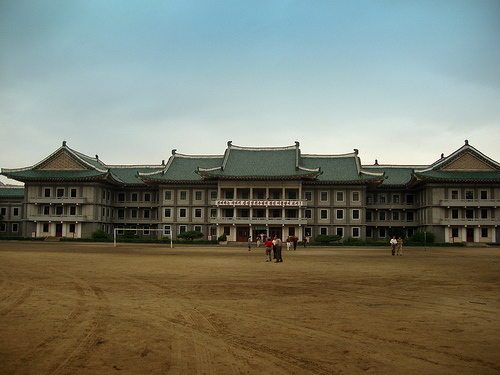In 2010, the number of defectors in South Korea reached 20,000. The number of defectors is growing, and their social backgrounds are very different from those who escaped in the 1990s and after. Most of the defectors who crossed over to South Korea in and after the 1990s were farmers, labourers and soldiers. Yet recently the number of exceptions has been growing. Firstly, there are intellectuals among the defectors. Secondly, there are quite a lot of people who are young, talented and eager to be educated, with the number of juvenile defectors in South Korea now reaching 1,800.
We can view the North Korean intellectuals living in South Korea as an existing alternative elite, and they have a great deal of potential. In Eastern Europe, the activities of dissident writers contributed much to the changes in their society. For example, in Poland and Hungary between the 1960s and 1980s, many of the most popular artists were in exile or intentionally avoided cooperating with the government in their own countries. From 1970, it became common sense that a writer who obeys his or her government cannot produce meaningful work.
Among the defectors in South Korea today are writers, poets, journalists and people working in the movie industry. But most of them find it difficult to continue their creative lifestyles. The experiences that are the themes in their work are, of course, close to the reality of North Korea. However, it is a matter of regret that South Korean mainstream society is indifferent to both North Koreans and their experiences. Under such conditions, works that deal with North Korean life are not marketable. This is why North Korean artists cannot make a living in creative activities without external support.
There are various ways to support them: by providing financial support to North Korean writers, supporting magazines and publishing companies that publish their work and promoting exhibitions by North Korean painters. Broadcasting stations for North Korea such as Free North Korea Radio can also act as a base of financial support for the alternative elite. Most important is the creation of a new elite, as intellectuals who were educated in North Korea know well the reality of the country, but face many obstacles in learning modern knowledge, whereas young North Koreans can learn world-class technology and knowledge when educated in South Korea.
Yet, North Korean university students who are admitted to South Korean universities face too difficult a challenge. First of all, despite the fact that they went to middle school and high school, the facilities and education standards of North Korea are far behind those of South Korea, with the exception of a few privileged schools. Secondly, most of them couldn’t get access to any kind of education while they were in China after defecting. Thirdly, the social culture and school culture they are used to is different from that of South Korea.
However, the most important obstacle they face is the different content of the education. Most of what they learn in North Korea is lies, worthless in the modern world. For example, North Korean students learn much about the Kim family, but such knowledge is not helpful in any way, whilst most North Koreans cannot speak English or use a computer. Kim Chul Yong, the vice director of the movie ‘Crossing’ said, ‘whatever you learned in North Korea, it is always better to learn it again in South Korea.’ So in order to adjust to school life, North Korean university students have to work much harder than South Korean students. Therefore, even if North Korean students are talented, it is difficult for them to excel in South Korean schools.
We can also see how difficult it is for North Korean students to study when we consider the economic status of defector families. The income of a North Korean family is about 50 per cent of that of a South Korean family. This forces them to put more effort into making a living than studying hard, and those defectors who could serve as the future elite cannot focus on their studies because they have to support themselves. It would be a good idea to provide top students with a living expense subsidy of 400,000 won to 500,000 won a month and a scholarship for graduate school. This program has a small net cost with large potential benefits and, given the low numbers of eligible students, could be supported equally well by government or other institutions. The creation of an alternative North Korean elite could benefit the entire peninsula.
Andrei Lankov is an associate professor at Kookmin University in Seoul, and adjunct research fellow at the Research School of Pacific and Asian Studies at the Australian National University.


Another great article by Andrei. Most South Koreans’ cold-shouldering of the northern brethren in their midst is callous and short-sighted.
However, given post-communist histories elsewhere, what’s the betting that a future North Korea (if not simply absorbed by the South, with much indigestion) will in fact be run NOT by defectors but by suave turncoats of the DPRK elite who will jump ship when the time is right? Cf Iliescu in Romania, and many others